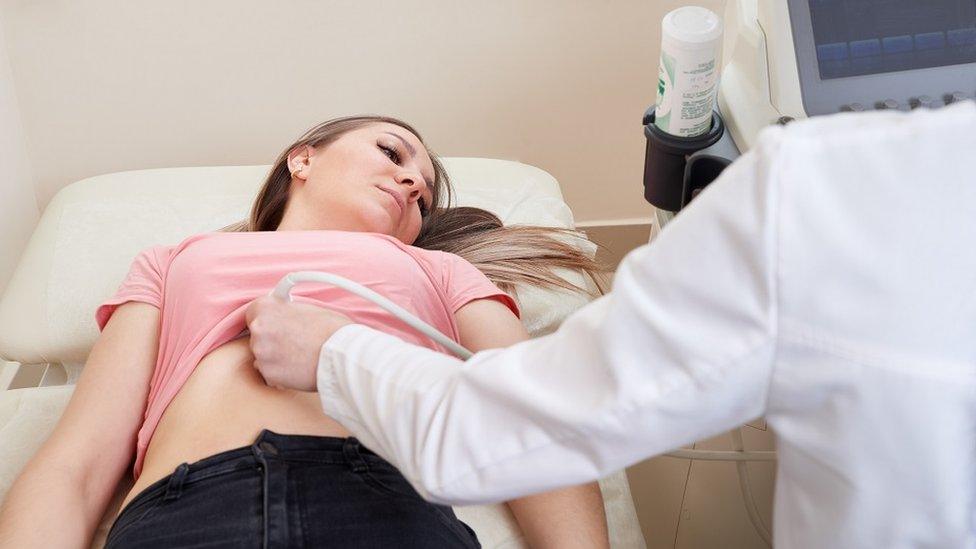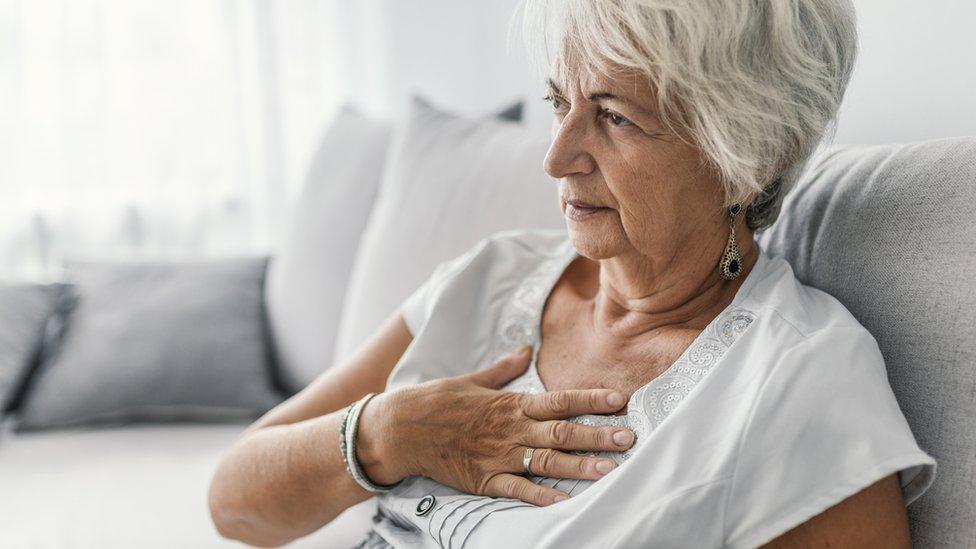More progress needed on women's health action plan - BMA Scotland
- Published

More needs to be done to ensure a plan to address women's health inequalities in Scotland is making a difference, doctors have warned.
The 2021 plan includes recommendations for better treatment of endometriosis, the menopause and heart disease.
BMA Scotland said "practical and substantive changes" had not been felt by women so far.
Prof Anna Glasier, the Women's Health Champion for Scotland, said progress had been made.
The Scottish government's women's health inequalities plan, which was drafted with input from the real-life experiences of women, set out 66 actions in 2021.
These included appointing a national women's health champion and a women's health lead in every NHS board, as well as developing a menopause and menstrual health workplace policy.
GP Patricia Moultrie, who is deputy chairwoman of the BMA's Scottish GP Committee told BBC Radio's Good Morning Scotland programme: "It is true to say progress has been made, we are doing this in the context of a very difficult situation with the NHS with long waiting lists and increased pressure on GPs.
"There's a great deal more to be done before women and girls in this country really feel that things have substantially changed.
"I don't think that perhaps very practical and substantive changes are being felt by women and girls in this country trying to access care [but] I think what is being done is a significant amount of pathways work, and that has potential to improve the care of patients."
'Historical attitudes'
A national women's health champion was appointed in January and there is now a women's health lead in nearly every NHS board.
In addition, a network of menopause and menstrual health experts has been set up across the country.
Prof Glasier said these appointments meant they were "making progress in changing the culture of boards to pay more attention to women's health in Scotland".
She added: "The overall aim is to improve the health of women and girls in Scotland and reduce health inequalities.
"It is going to take time. Discrepancies have been embedded for many years but we are working together more than we were and we are making use of opportunities to improve and to think differently about women's health service."
Prof Glasier gave the example of how men and women in their 60s going to a GP complaining of chest pains were often treated differently, leading to delays in women getting diagnosed with heart disease.
She added: "It take a long time to change these historical attitudes."
- Published30 September 2019

- Published20 August 2021

- Published23 January 2022
